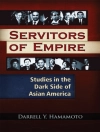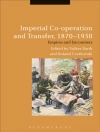China’s foreign policy in the Arab world is important because it reflects China’s general foreign policy. In this study, first published in 1981, the author draws upon a wealth of previously unpublished and inaccessible material to analyse Chinese attitudes in three cases: the two Arab liberation movements, the Palestine Resistance Movement and the Popular Front for the Liberation of the Oman, and the established and independent State of Kuwait. Since the Arab liberation movements played a significant political role within their fields of operation, it was necessary for China to decide whether these movements did actually fit in with Chinese foreign policy objectives. Dr Behbehani’s analysis of these two case studies provides the basis for a discussion of whether China’s motives in supporting the liberation movements are theoretical or purely practical. China’s support for Kuwait’s political internal continuity is related to the stability of the whole Gulf region. The author analyses Chinese support for Kuwait and the surrounding conservative states on two main bases, political and economic, in the form of trade. It is through these channels, particularly the economic one, that China has sought to establish itself in the Gulf and the Arabian peninsula.
Hashim S.H. Behbehani
China’s Foreign Policy in the Arab World, 1955-75 [PDF ebook]
Three case studies
China’s Foreign Policy in the Arab World, 1955-75 [PDF ebook]
Three case studies
Köp den här e-boken och få 1 till GRATIS!
Språk Engelska ● Formatera PDF ● Sidor 442 ● ISBN 9781000113105 ● Utgivare Taylor and Francis ● Publicerad 2020 ● Nedladdningsbara 3 gånger ● Valuta EUR ● ID 8110774 ● Kopieringsskydd Adobe DRM
Kräver en DRM-kapabel e-läsare












